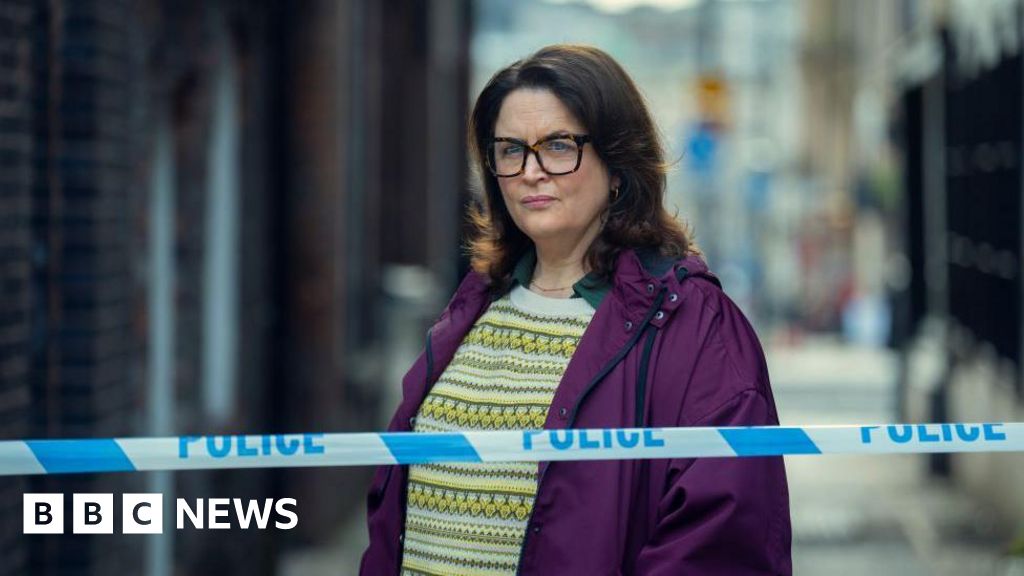Empires crumble more easily than many of us would like to admit, and in Netflix‘s new limited series “Hostage” — written and created by “Bridge of Spies” scribe Matt Charman — two world leaders face an international crisis that threatens their personal lives, careers and the countries they have been tasked with defending. Fast-paced with a side of melodrama, the political thriller is an intricate puzzle of power, ruthlessness and unimaginable choices.
“Hostage” opens in present-day London. Just eight months into her role, British Prime Minister Abigail Dalton (Suranne Jones) is facing two major crises. In an attempt to fix the faltering economy, she has cut the U.K.’s military budget by huge numbers, much to the chagrin of her cabinet. Additionally, the National Health Service is facing a supply crisis. Pharmacies across the country have bare shelves, and the most at-risk citizens are unable to get life-saving medication. Still, Dalton is determined to press forward with an Anglo-French Summit and her historic meeting with French President Vivienne Toussaint (Julie Delpy). Unfortunately, amid negotiations about refugees and medical aid from France, Dalton learns her husband, Dr. Alex Anderson (Ashley Thomas), and his team have been taken hostage in French Guiana while administering aid to locals in need.
Horrified, Dalton turns to President Toussaint for help, but the far-right leader would rather engage in quid pro quo than allyship. What’s worse, Alex’s kidnappers are demanding Dalton’s resignation in exchange for his safe return. Across five episodes, “Hostage” moves at a rip-roaring pace. As additional information about the kidnappers and Dalton’s political past is revealed, it becomes quite evident that this is well beyond a simple ploy to oust the prime minister. Moreover, while Toussaint initially seeks to use Dalton’s misfortune for her gain, she realizes her own shortcomings are on the verge of being exposed.
Though the structures and stresses of government are fascinating to watch, what makes “Hostage” captivating is seeing two women as heads of state who are vilified and undermined at every turn due to misogyny and any perceived weakness. The series illustrates the inhumanity central to politics, and it’s easy to see why so many politicians turn cruel and callous to preserve themselves over the people they’ve promised to help.
Jones and Delpy are fantastic in their respective roles, but “Hostage” has a soapy quality to it, preventing it from being elevated to true high drama. Additionally, some of the series’ plot points blossom out of nowhere (as when Alex preposterously goes to Guiana without a security detail). While fun to watch, they don’t seem like fully fleshed-out ideas. Also, the big bad in the show isn’t quite as fully realized as audiences might expect. Still, despite these minor mishaps, the narrative is captivating, the tension between Dalton and Toussaint is palpable and the friction Dalton has with her teen daughter, Sylvie (Isobel Akuwudike), following Alex’s kidnapping is gutting.
The penultimate episode, Episode 4, is the showstopper here. Amid public outcry and turmoil, Dalton and President Toussaint reflect on their motivations for entering politics and the lengths to which they will go to secure their political futures. It’s also a reminder to viewers that even when we think we know how a story will end, it often shifts in a new direction, forcing us to open our eyes and minds to alternative outcomes and perspectives.
Despite some truly far-fetched storylines and one rather salacious twist, “Hostage” is certainly worth the ride. If the current American government were in a different state, the outlook on the show may have been slightly different. However, through a 2025 lens, the limited series reminds audiences of the fragility of democracy, that perfect politicians don’t exist and why greed and vengeance rooted in the foundation are strong enough to level it all at any moment.
“Hostage” is now streaming on Netflix.
Source link


